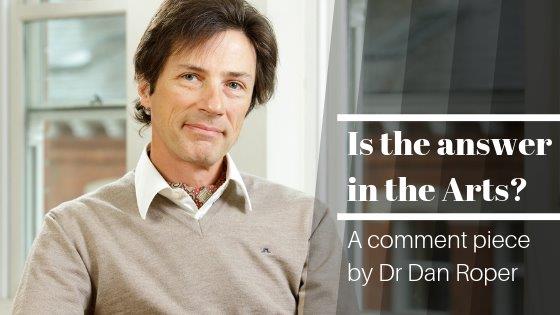 October has seen a big focus on mental health; the appointment of the first Suicide Prevention Minister, the first Global Ministerial Mental Health Summit and World Mental Health Day.
October has seen a big focus on mental health; the appointment of the first Suicide Prevention Minister, the first Global Ministerial Mental Health Summit and World Mental Health Day.
Mental health is big news, with one in four people in England suffering with mental ill-health at some point in their lifetime. As a society we have begun to talk openly, and frequently, about the need to raise awareness, but with mental ill-health now so common, should we not be asking ourselves ‘what more can we do to tackle this?’
In Hull we hugely recognise the impact arts and culture can have on mental health and emotional wellbeing; last year we were a major sponsor of Hull City of Culture, we’re proud to offer social prescribing, which includes arts and culture based interventions to patients, and for years we have run our Healthier Hull Community Fund, where we provide funding to groups across the city to improve health and wellbeing in innovative ways.
It is clear that the medical profession cannot prevent all mental ill-health alone.
Increasingly, we are becoming a self(ie)-obsessed society. We’re losing our ability to connect to one another. Arts and culture can certainly play a big part in helping us to learn about how people think, how people deal with situations, and begin to build the resilience needed to tackle life’s curveballs.
Dealing with issues in a fictional way can be a powerful tool. A piece of music, a book or play, can connect us to other people, it can help us begin to wonder ‘what were they thinking?’, ‘what made them act in that way?’.
In Hull, I’m proud to say, we get it. That said, there are sceptics. “Is this how we should be using NHS resources?” If you’re a sceptic, I would like to ask you how much of a cultured life you already lead? Without realising it – even if you can afford a cultured life and to pay the price of admission, you are probably benefiting from arts and culture that receives generous subsidies and grants. Art galleries, the opera, theatre, ballet. How much benefit do you get from it – a lot, I imagine. Believe it or not, those experiences are exclusive, and some people who would benefit are excluded from them and the benefit of those tax payer subsidies and grants.
Music, books, plays, all level of arts and culture, bring people together. They create reference points, reach people who wouldn’t ordinarily ask for help, and help people to act and behave in different ways. Maybe, just maybe, arts and culture can help people to feel happier, to stop suffering in silence and to feel empowered – to take control, to talk, to reconnect.
Of course, there are mental health issues that really can only be helped with medical intervention and treatment by mental health professionals. But, there are other issues, like social isolation and loneliness, that as a society we have to get better at dealing with. We must guard against medicalising loneliness – and I’m almost certain that people who are lonely do not want it to be ‘treated’ – but what they do want is a connection, someone to talk to and someone to listen to them.
When we consider loneliness, it is not just the elderly. Think about how many times in your life you have felt alone – even when surrounded by people – maybe through lack of, or loss of, an intimate relationship in its broadest sense; when your first love broke your heart, when you struggled with exams, when having a young family made you feel isolated, when being unemployed meant your networks weren’t around or when a spouse, partner or friend passed away. We have all needed a human connection at some point in our lives; these experiences are not exclusive.
What if you don’t already have someone to connect with? We all know that whenever we go see a play or a film, we want to talk to someone about it – it evokes a reaction that can bring people together, whether that is in person or online, it creates a much needed connection.
As a health service, I believe we have a responsibly to support these connections and those who facilitate them, a responsibility to look at the wider ways of preventing mental ill-health, a responsibility to start the conversations that might change an individual’s life.
So, what more can we do to tackle and prevent some mental health issues? I think arts and culture might just be the starting point we’re looking for.
Dr Dan Roper
NHS Hull CCG Chair

